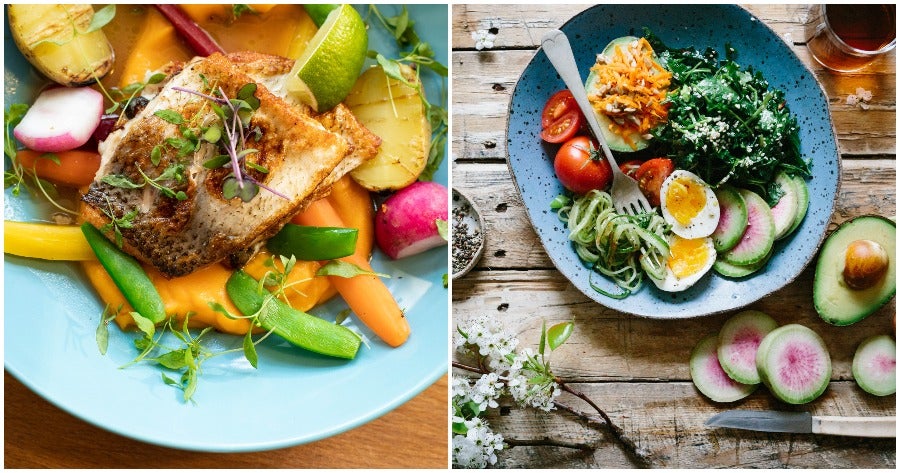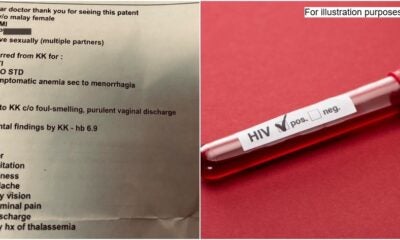For those of you who think a vegan diet and a vegetarian diet are the same, here’s the wake-up call you need!
Non-meat diets have been growing in popularity throughout the world as people become more conscious about their health. But does that mean people on non-meat diets only eat salads all day? Not exactly.
As it turns out, there are different variations of non-meat diets and various reasons why people opt for them instead of a normal diet. It is sometimes common to find Malaysians taking up a vegetarian diet for religious reasons. But to fully understand what non-meat diets are, we need to look at their classifications. Here are a few to get you started!
1) Vegetarian
A vegetarian diet excludes meat, poultry, fish, and seafood and includes eggs and dairy. If you are planning to make the switch from a meat-based diet to a non-meat-based diet, a vegetarian diet would be perfect for beginners!
One step at a time.
There are certain pros and cons to this practice. Among them would be a lower cost for groceries and making a positive environmental impact while providing multiple health benefits. But are there many vegetarian options in Malaysia?
WORLD OF BUZZ spoke to a student who practices a vegetarian diet and they shared that there is a limited range of vegetarian food available in hostels, thus making it hard to be a vegetarian on campus. Moreover, adapting to this lifestyle may not be easy.
Vegetarians also shared that they incorporate various types of nuts, beans, milk, and cheese in their daily meals to be equipped with the proper amount of protein.
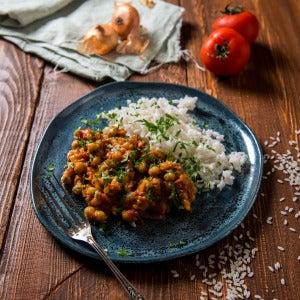
2) Ovo-vegetarian
If you’re a sucker for eggs and you’re not ready to give up your telur mata on that nasi goreng just yet, the ovo-vegetarian diet might be something you’ll want to consider. The ovo-vegetarian diet is a choice that includes eggs and excludes dairy and all types of meats.
Many had been practising ovo-vegetarianism in an effort to improve their diet as it is naturally a great source of nutrients and there are some who take it up as a result of allergies to dairy products. WORLD OF BUZZ reached out to an ovo-vegetarian and here’s what they shared with us.
“I made the decision to not eat anything that has blood two years ago. I’m trying to stop eating eggs now but it’s harder since a lot of products contain eggs. I just don’t want animals to suffer because of me.”
Among the pros of practising this diet is that it is economical and healthy. Besides that, it advocates against animal cruelty. However, the intake of eggs alone may at times be an inadequate source of protein.
An ovo-vegetarian diet would comprise of fruits, vegetables, legumes, beans, eggs, and products containing eggs.
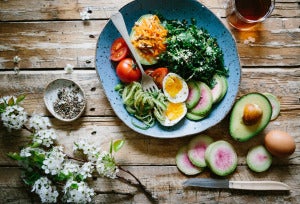
3) Lacto-vegetarian
On the other hand, a lacto-vegetarian diet is one that excludes all types of meat and eggs and includes dairy products such as yoghurt, cheese, and milk.
As much as this diet reduces the impact on the environment and allows much more flexibility compared to the other types of non-meat diets, it is important to plan and invest in making sure there is no deficit of other nutrients while trying out the lacto-vegetarian diet.
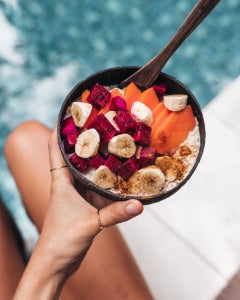
4) Pescatarian
If you are an ardent fan of seafood but still want to give up meat, being a pescatarian may be just the right choice for you! Pescatarians abstain from eating all meat and animal flesh except seafood.
The benefits of this diet lie in obtaining the protein that may seem absent in other forms of non-meat diets. This surely is a stepping stone towards becoming a full-vegetarian. According to a study, a pescatarian diet protects individuals against colorectal cancers. However, a pescatarian diet can be expensive due to the hiking price of seafood.
When WORLD OF BUZZ asked a pescatarian about her protein intake after she went on the diet for eight months, she said,
“I regularly consume dairy products. I drink milk and mostly add yogurt when I eat rice.”
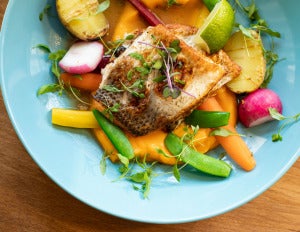
5) Vegan
A vegan diet is typically known as the most restrictive diet as it is completely devoid of animal products that include meat, poultry, fish, seafood, dairy products, eggs, and honey.
As much as there are health benefits to becoming vegan, like avoiding cruelty against animals and improving your health while saving the planet, a vegan diet may have some cons to it too. Vegan diets can be low on Vitamin-B, and researchers found that supplementation may be needed for practitioners of both vegan and vegetarian diets.
WORLD OF BUZZ spoke to a vegan and asked where they would typically get their protein from.
“Ah, the age-old question of ‘protein for vegans’. We get it from tofu, beans and legumes, oats, brown rice, and vegetables such as avocados, asparagus, kale, and spinach. Options are endless, to be honest, and it’s easy to get your hands on them nowadays.”
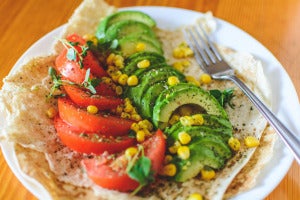
While the health benefits of starting a non-meat based diet are scientifically proven, some may still fear the lack of protein options when it comes to completely eliminating meat from your diet.
But thanks to the widespread popularity of non-meat diets in recent years, multiple non-meat foods are seen hitting the shelves to help individuals adapt to the absence of meat in their meals. Many individuals who practice non-meat diets are spoilt for choice with options such as plant-based milk, almond milk, oat milk. Substitutes for meat include frozen mock meat that’s often in the form of tofu, and an array of vegan cheese as well.
Which of these diets would you try out?

